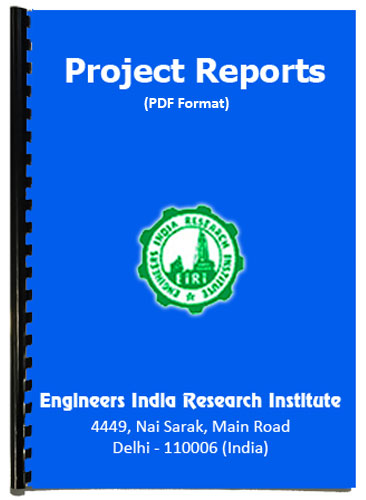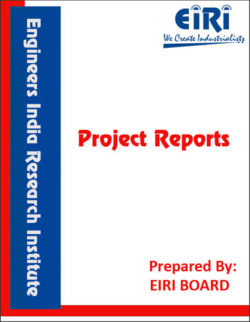Description
INTRODUCTION
CLASSIFICATION
CHARACTERISTICS
USES AND APPLICATION
INDUSTRIES
SPECIAL SERVICES
APPLICATIONS
SUBMARINE PIPELINES
RELINING – NEW PIPES IN OLD
SEWER PIPES
SLURRY TRANSPORTATION
IRRIGATION
DOMESTIC GAS DISTRIBUTION
CHEMICAL PROCESS PIPING
B.I.S. SPECIFICATION
HEADQUARTERS
SALES OUTLET
PROCESS OUTLINES OF HDPE PIPES EXTRUSION
PROCESSING DETAILS OF HDPE PIPES
EXTRUDER
FEED HOPPER
BARREL
SCREW
DIE
WATER COOLING TUB
PROCESS FLOW CHART
MANUFACTURING PROCESS
EXTRUSION PROCESS
WORKING PRINCIPLE
EXTRUSION PROCESS PARAMETERS
ADVANTAGES
DISADVANTAGES
RAW MATERIALS
QUALITY CONTROL OF HDPE PIPES
VISUAL INSPECTIONS
MECHANICAL INSPECTION
OTHER QC TESTS CAN INCLUDE:
DESCRIPTION OF MANUFACTURING PROCESS
INCOMING RAW MATERIAL INSPECTION
RESIN HANDLING FOR MOISTURE CONTENT AND TEMPERATURE
RESIN STORAGE AND CONVEYANCE
RESIN FEEDING
TESTING
(A) TYPE TEST
(B) ACCEPTANCE TEST
(C) LONGLTUDINAL REVERSION PERFORMANCE TEST
APPRATUS
1. AIR OVEN
2. THERMOMETER
TEST SPECIMENS
PROCEDURE
MARKING
MARKET POSITION OF INDIAN HDPE PIPES
OPPORTUNITIES OF HDPE PIPES
MARKET BY APPLICATION
MARKET BY GRADE TYPE
MARKET BY DIAMETER TYPE
MARKET BY PRESSURE RATING
GLOBAL MARKET POSITION OF HDPE PIPES
THE INDIAN PLASTIC PIPES MARKET
TYPES OF PLASTIC PIPES APPLICATION
MARKET SIZE OF PLASTIC PIPES AS PER APPLICATION
INDUSTRY ANALYSIS WITH PORTER’S 5 FORCES MODEL
BARGAINING POWER OF SUPPLIERS
BARGAINING POWER OF BUYERS
INTERNAL RIVALRY
ENTRY
THREAT OF SUBSTITUTES
GROWTH DRIVERS OF PLASTIC PIPES INDUSTRY
OTHER MEASURES
SWOT ANALYSIS
STRENGTHS
WEAKNESSES
OPPORTUNITIES
THREATS
SEWER RINGFIT PIPES AND SEWER SELFIT PIPES
DOMESTIC USE
INDUSTRIAL
OTHER
PLANT LAYOUT
MANUFACTURERS/SUPPLIERS OF HDPE PIPE
SUPPLIERS OF RAW MATERIALS
HDPE GRANULES
SUPPLIERS OF BLACK MASTER BATCH
SUPPLIERS OF ANTIOXIDANT
SUPPLIERS OF COMPLETE HDPE PIPE PLANT
SUPPLIERS OF PRECISION MEASURING TOOLS
SUPPLIERS OF EOT CRANE
SUPPLIERS OF POWER TRANSFORMER
SUPPLIERS OF ELECTRICAL PANEL
SUPPLIERS OF COOLING TOWER
EFFULENT TREATMENT PLANT
AIR POLLUTION CONTROL EQUIPMENTS
AIR CONDITIONING EQUIPMENTS
AIR COMPRESSOR
PLATFORM WEIGHING MACHINE
MATERIAL HANDLING EQUIPMENTS
FIRE FIGHTING EQUIPMENTS
APPENDIX – A:
01. PLANT ECONOMICS
02. LAND & BUILDING
03. PLANT AND MACHINERY
04. OTHER FIXED ASSESTS
05. FIXED CAPITAL
06. RAW MATERIAL
07. SALARY AND WAGES
08. UTILITIES AND OVERHEADS
09. TOTAL WORKING CAPITAL
10. TOTAL CAPITAL INVESTMENT
11. COST OF PRODUCTION
12. TURN OVER/ANNUM
13. BREAK EVEN POINT
14. RESOURCES FOR FINANCE
15. INSTALMENT PAYABLE IN 5 YEARS
16. DEPRECIATION CHART FOR 5 YEARS
17. PROFIT ANALYSIS FOR 5 YEARS
18. PROJECTED BALANCE SHEET FOR (5 YEARS)



